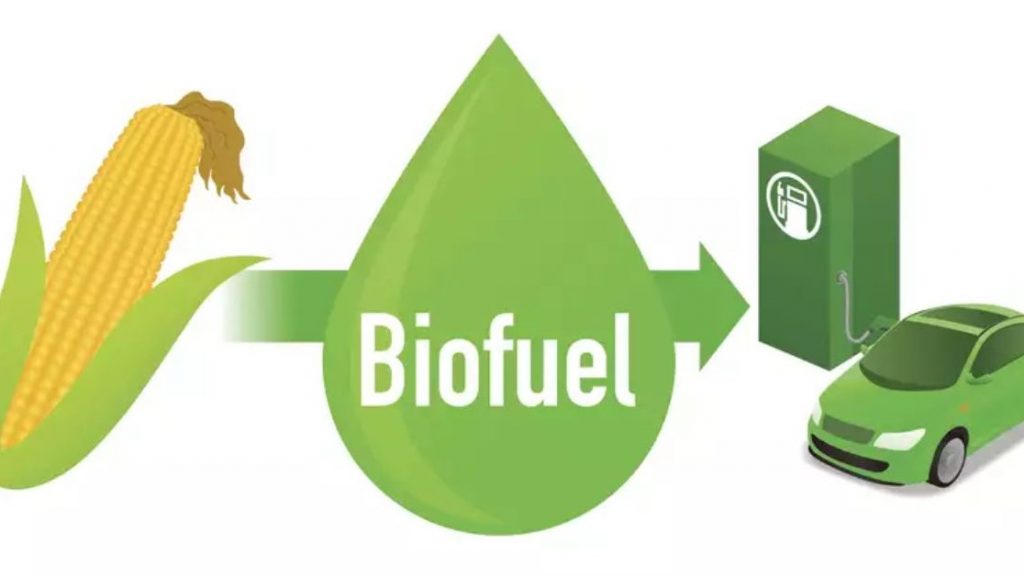The upcoming 14th Clean Energy Ministerial and Eighth Mission Innovation (CEM14/MI-8) conference, scheduled to take place in Goa from July 19-22, 2023, is likely to establish the Global Biofuel Alliance (GBA).
CEM serves as a prominent international platform, bringing together influential figures to promote clean energy technology and knowledge exchange and facilitate the global transition towards a clean energy economy.
Under the leadership of India during its G20 Presidency and with the support of Brazil and the United States, the alliance will focus on fostering international collaboration and cooperation to encourage the widespread acceptance and utilisation of biofuels.
The GBA is a crucial priority under India’s G20 Presidency, Hardeep S Puri, the Union minister of petroleum and natural gas, said at multiple events. It will collaborate and complement existing regional and international agencies and energy transition initiatives, including the Clean Energy Ministerial Biofuture Platform, the Mission Innovation Bioenergy initiatives and the Global Bioenergy Partnership (GBEP).
“GBA will boost global trade and secure the availability of biofuels,” added the minister.
The transformative opportunities offered by biofuels in terms of economic growth, rural development, energy self-sufficiency, reduced air pollution and clean energy transition are immense. This alliance aims to promote cooperation and accelerate the adoption of sustainable biofuels.
The focus will be on strengthening markets, facilitating global biofuel trade, sharing concrete policy lessons and providing technical support for national biofuel programmes worldwide. The alliance will also highlight successful cases and best practices that have already been implemented.
India’s biofuel programme stands as a remarkable endeavour with ambitious goals. In the fiscal year 2020-21, India achieved a significant milestone by producing 4.08 billion litres of ethanol, resulting in a blending rate of 10.02 per cent.
This accomplishment led to a reduction of 2.7 million tonnes of CO2 emissions and saved approximately Rs 41,500 crore in foreign exchange. The current target for 2022-23 is to achieve a blending rate of 12 per cent. However, to reach the goal of 20 per cent blending by 2025, the production capacity for ethanol needs to be expanded to 17 billion litres.
India has also been actively promoting compressed bio-gas (CBG) as a clean fuel derived from waste. The Sustainable Alternative Towards Affordable Transportation (SATAT) programme has played a crucial role in establishing 46 CBG plants and the sale of around 16,164 tonnes of CBG as of March 2023.
Nevertheless, achieving the ambitious target of installing 5,000 CBG plants across India by 2024 will require significant efforts and a supportive ecosystem. “The transfer of technologies and mobilisation of international climate funds through this alliance will definitely help India to move faster in the compressed biogas sector,” Bijay Kumar, former general manager of Indian Oil Corporation Limited, told Down to Earth (DTE).
India successfully conducted its first commercial passenger flight using sustainable aviation fuel (SAF) blend produced domestically to address decarbonisation in the aviation sector. The flight, which took place from Pune to Delhi on May 19, 2023, marked a significant milestone. The Union Ministry of Petroleum and Natural Gas has established the Bio-Aviation Turbine Fuel Programme Committee to further advance the programme in the country.
Aiming for a 1 per cent SAF blend in jet fuel by 2025 would require around 140 million litres of SAF per year, according to Puri. Moreover, with a more ambitious target of a 5 per cent SAF blend, India would need approximately 700 million litres of SAF per year. The establishment of the GBA is inspired by the International Solar Alliance (ISA), which was jointly initiated by India and France in 2015 to combat climate change through the widespread adoption of solar energy solutions.
Currently, the ISA Framework Agreement has been signed by 114 countries. The ISA has made significant contributions through various initiatives, including the Solar Finance Facility, which supports the development of financially viable solar projects. The SolarX Grand Challenge has played a role in nurturing solar startups by providing guidance and facilitating access to manufacturers, suppliers and investors.
Additionally, the Solar Technology Application Resource Centres have served as training centres, while the ‘One Sun One World One Grid Initiative’ aims to achieve universal access to electricity on a global scale. The alliance has developed innovative business models for solar projects and provided analytical and advisory support to governments in making their energy policies more solar-friendly.
“The impact of such alliances is vast. The establishment of the GBA could assist India in achieving greater energy independence and reduce its reliance on foreign oil by promoting the increased utilisation of biofuels,” Monish Ahuja, chairperson of the Confederation of Biomass Energy Industry of India, told DTE.
However, the forum should not be limited to being a stagnant platform; rather, it should have specific goals to be achieved in the short and medium terms. In the context of India, immediate objectives could involve strengthening the biomass supply chains, transferring technology for the efficient production of second-generation ethanol from agricultural residue, showcasing pilot-scale production facilities for SAF and promoting sustainable financial support for bioenergy initiatives.
It will be interesting to observe the detailed roadmap, ambitious targets, innovative initiatives and, most importantly, the tangible impact that GBA could potentially bring about in revolutionising the global biofuel industry.
Tags: Biofuel, Clean Energy, G20, Global Biofuel Alliance



Recent Posts
Port of Brisbane Unveils Vision 2060 to Drive Smarter, Cleaner, and More Connected Future
Wärtsilä to Deliver Hybrid Propulsion Systems for Vertom Group’s New Low-Emission Vessels
Latvian port receives electric Konecranes Gottwald Mobile Harbor Crane
Sustainable Ocean Economy Vital for Human Development, Says UNDP at UN Ocean Conference
Green Hydrogen Costs in India Could Drop by 40%, Says IEEFA-JMK Report
Cavotec Secures €1.55 Million Shore Power Contract for Port of Antwerp-Bruges
APM Terminals and SANY Marine sign landmark agreement to accelerate decarbonisation
The Port of Gothenburg takes big step towards shore power connection for container and car/RoRo vessels